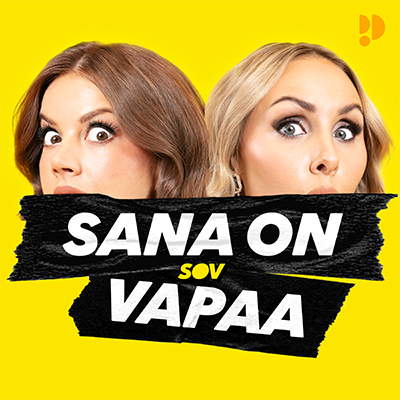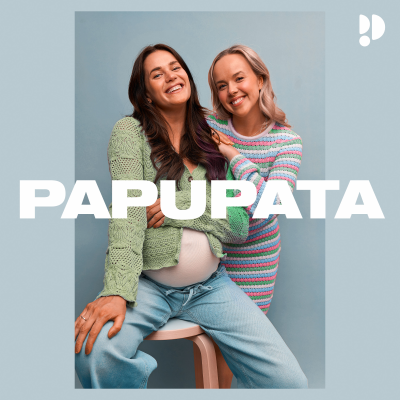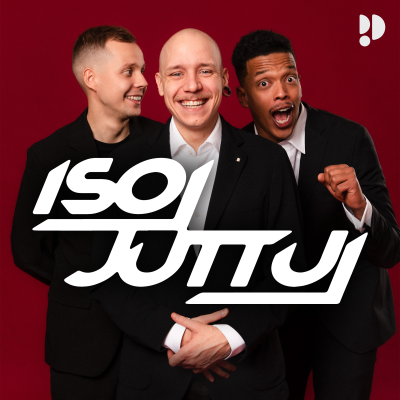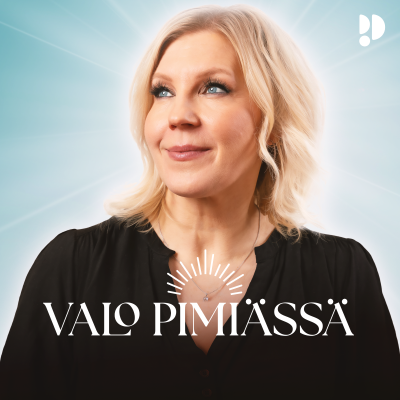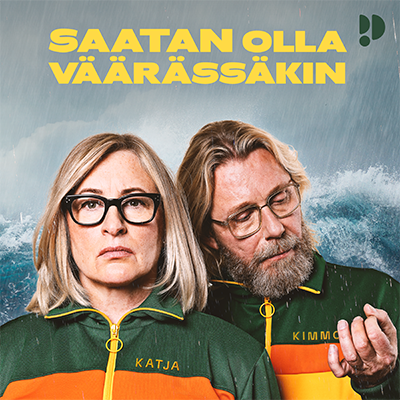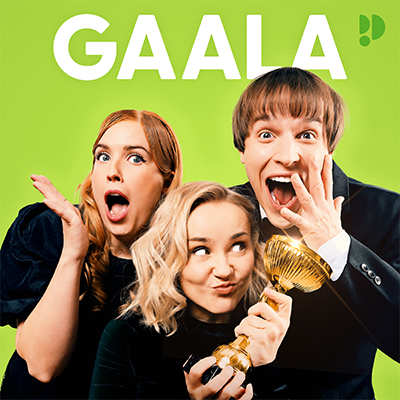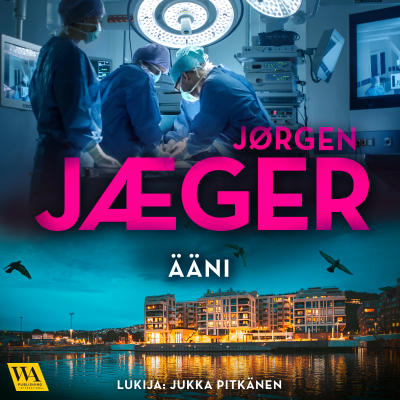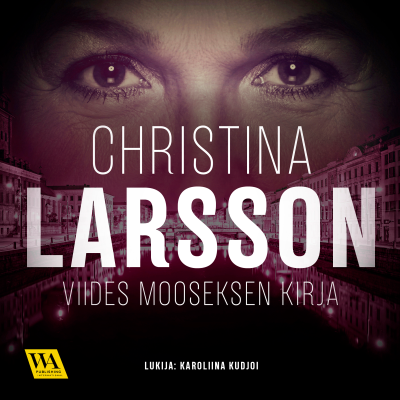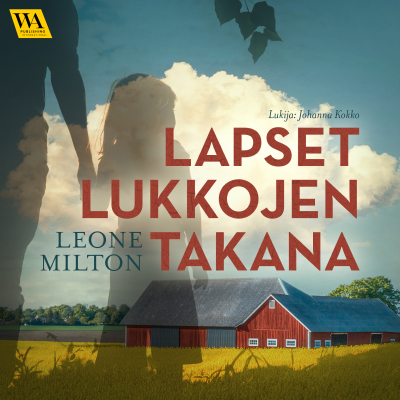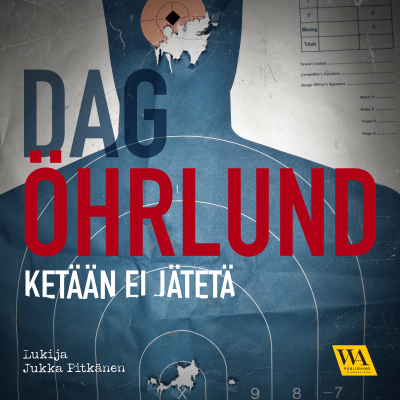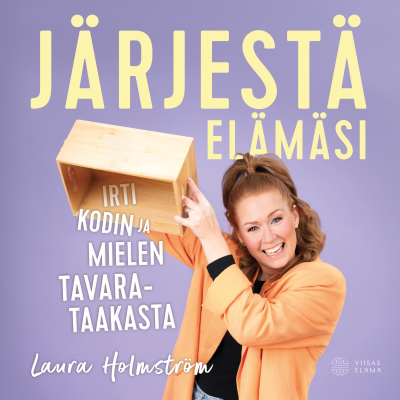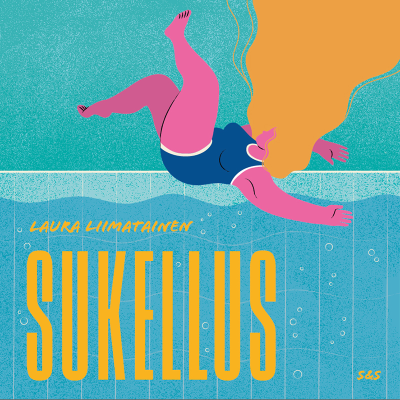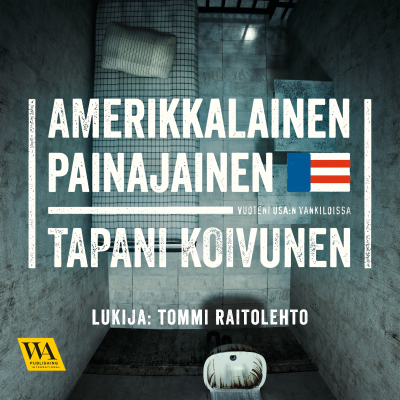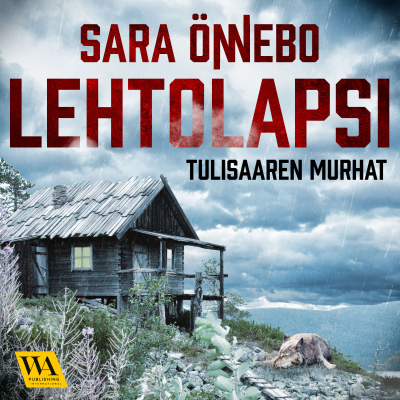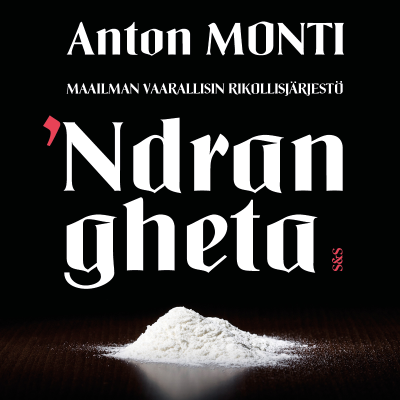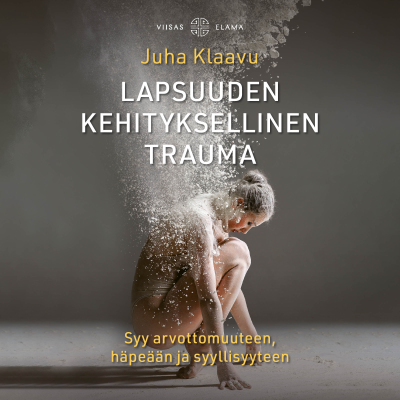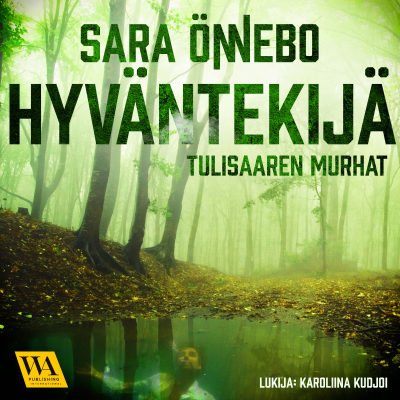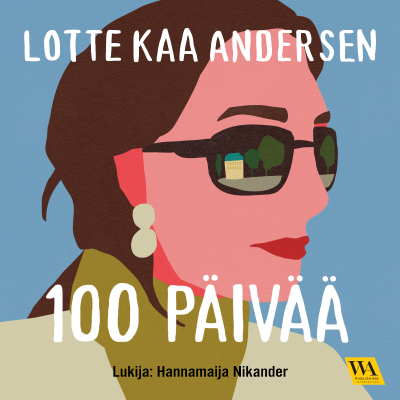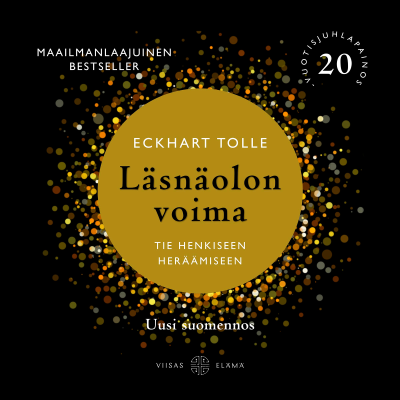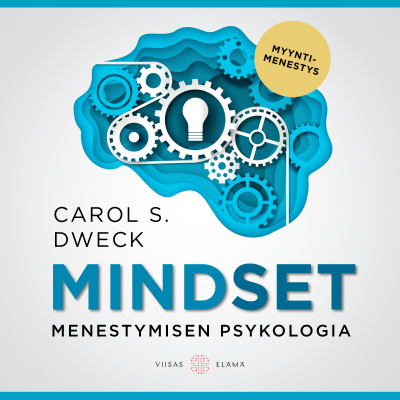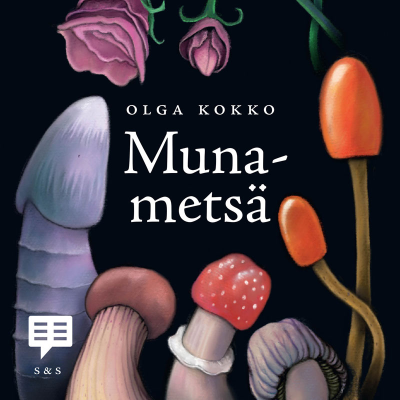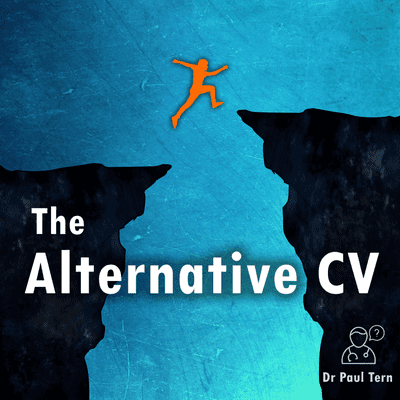
Alternative CV
Podcast by Paul Tern
Dr Paul Tern works as a doctor by day, but in his spare time he finds and interviews people who have chosen to pursue more unconventional careers, hobbies or side projects. Focusing on the Asian context where traditional professional careers still rule, he explores the stories of individuals who have bucked the trend and built an alternative CV. Join him for some far-reaching conversations as he listens to their journeys, explores varied and interesting fields, and ultimately unearths advice and wisdom that we can all learn from. Come and be inspired - new episodes every Thursday.
90 vrk ilmainen kokeilu
Kokeilun jälkeen 7,99 € / kuukausi.Peru milloin tahansa.
Kaikki jaksot
48 jaksotBIO Dorothea Koh [https://www.dorotheakoh.com/] is the founder and CEO of a healthcare technology company, Bot MD. Bot MD is a mobile-based AI chatbot that provides an interface for doctors to quickly access information related to hospital policies, formularies, check who’s on call etc. Along with her founder YC, Dorothea started Bot MD back in 2018 and joined Y Combinator’s summer 2018 batch. Prior to starting Bot MD, Dorothea rocketed up through the ranks at Medtronic and then Baxter, eventually holding the portfolios of country head for Singapore, Indonesia, Philippines, Brunei and Myanmar. However, she chose to give that up and chose the unconventional path, resigning from her job to start Bot MD. 3 THINGS I LEARNED 1. It hurts to “wander around in the desert” looking for product market fit, but it’s an unavoidable part of the journey and it teaches you a lot of lessons. Trust your instincts as an entrepreneur. Keep iterating until you have something that customers snatch out of your hands, maybe even before it’s perfect. 2. Think twice before raising funds. Dorothea thinks of it like credit card debt - you can draw down as much as you want on it, but there’s a hefty interest bill to come later. Do as much as you can to stretch your funds. If your idea isn’t working, think about shutting the firm down rather than raising more money to keep a zombie company going. 3. It’s important for leaders to be on the ground, so that you know exactly what your customers want. Dorothea used to make her sales reps take her to the deepest parts of China with them to meet her customers. TOPICS WE COVERED * What life was like at Y Combinator, and how it differs from the Stanford Biodesign course * What it was like pitching to her seed investors - and what seed investors are looking for * What it feels like to “wander in the desert” looking for product market fit * How you know you have product market fit * How you should think about raising funds for your startup - it’s not a free lunch * What Dorothea learned from working for established medical technology companies * How Dorothea went to see the users of her company’s products in far flung villages - and the lessons this taught her * Skills you should focus on learning when you are working for other larger organisations * What’s next for Bot MD
BIO Dorothea is the founder and CEO of a healthcare technology company, Bot MD. Bot MD is a mobile-based AI chatbot that provides an interface for doctors to quickly access information related to hospital policies, formularies, check who’s on call etc. Along with her founder YC, Dorothea started Bot MD back in 2018 and joined Y Combinator’s summer 2018 batch. Prior to starting Bot MD, Dorothea rocketed up through the ranks at Medtronic and then Baxter, eventually holding the portfolios of country head for Singapore, Indonesia, Philippines, Brunei and Myanmar. However, she chose to give that up and chose the unconventional path, resigning from her job to start Bot MD. 3 THINGS I LEARNED 1. Choosing a co-founder is one of the most important steps. In Dorothea’s words, it’s like being married and raising a baby together with your partner. Only you and your co-founder fully understand “how sucky it is when times are down”. It’s during these times that your co-founder might be vital in providing you with encouragement. 2. Start by building low-code prototypes. These are prototypes that involve little to no code. The goal is to prove certain hypotheses before you get too caught up with building the prototype. 3. A startup journey might take 10 years of your life, with lots of stress and sleepless nights. So you need to ask yourself whether your idea is worth the pain of going through that process. Do people want it enough? What is your right to win, and why should you be building it? What’s the size of the market? TOPICS WE COVERED * What Bot MD does * Why Dorothea left her first job at EDB * The initial experiment Dorothea ran that made her realise that Bot MD was a good idea * Why building a startup is a painful journey but a very instructive one * The importance of having a co-founder * What a cofounder relationship is like * What Dorothea does as CEO * Factors to consider when starting a startup * Dorothea’s epiphany that turned the company around and helped them find product market fit * Bot MD’s breakthrough product in NUH
Dr Daniel Ting is the Consultant, Vitreo-retinal surgeon in the Singapore National Eye Center (SNEC), Head of AI and Digital Innovation in the Singapore Eye Research Institute (SERI), and an Associate Professor in Ophthalmology with Duke-NUS Medical School Singapore. He is also the visiting Full Professor in Ophthalmology in Zhongshan Ophthalmic Eye Center, Sun Yat-Sen University, China; 2017-2018 US-ASEAN J. W. Fulbright Scholar to Johns Hopkins University, the EXCO of the American Academy Ophthalmology (AAO) AI Task Force and Standards for Reporting of Diagnostic Studies (STARD-AI) Task Force. At present, he is the Associate Editor of Nature Digital Medicine, Section Editor (AI and big data) in British Journal of Ophthalmology (BJO) and the Editor of Ophthalmology, Ophthalmology Retina, Ophthalmology Science and Asia-pacific Journal of Ophthalmology. To date, he has published >180 peer-reviewed papers/book chapters/conference abstracts, including >40 AI and digital technology articles in JAMA, NEJM, Nature Medicine, Nature Digital Medicine, Lancet Digital Health and others. Daniel holds several patents in deep learning systems for medical imaging analysis, and is also the co-founder of an AI spin-off company, EyRIS Pte Ltd. EyRIS has commercialised the Singapore Eye Lesion Analyser and to date has partnered with >20 optometry practices. 3 THINGS I LEARNED 1. Perseverance is a fundamental ingredient for success. Dr Ting’s initial work was rejected numerous times, but he never gave up. He kept persisting until it was finally accepted into a big journal (Journal of the American Medical Association) - which was the break he needed to launch his career. 2. Mentors are important, both in terms of giving you advice to guide your career and opening door and providing opportunities for you to build new skills and competencies. 3. If you want to learn new skills, you have to be ready to read a lot. Today this data is freely available on the internet. Apart from reading and listening to talks, you can also consider following the leading lights in the field on twitter for instance to get a feel for where the cutting edge developments are.
Dr Ngiam Kee Yuan is the Group Chief Technology Officer of the National University Health System (NUHS) Singapore overseeing technology deployment in Western Healthcare Cluster of Singapore. He is concurrently the Deputy Chief Medical Informatics Officer at the National University Hospital of Singapore and has a special focus on artificial intelligence research and implementation in healthcare. He has certification training by the American Medical Informatics Association and has published in computing and medical journals on topics related to healthcare AI applications and technology. Dr Ngiam is a Consultant Thyroid and Endocrine Surgeon and Assistant Professor at the Department of Surgery, National University Hospital, Singapore specializing in thyroid oncology and minimally invasive endoscopic and robotic thyroid surgery. Dr. Ngiam also engages in research into endocrine and metabolic surgery as well as artificial intelligence applications in healthcare.He promotes interdisciplinary collaboration throughout the NUS campus, particularly between the schools of medicine, engineering, and computer science for various healthcare applications. He has been awarded the ExxonMobil-NUS Research Fellowship for Clinicians and numerous teaching awards for his work in research and education. 3 THINGS I LEARNED 1. Take a year out if you would like to explore an area that you want to go into. But be clear about what you want to explore and achieve. Keep in close contact with your mentor to ensure that you are not forgotten or lost. Speak to your employers to ensure that the additional skills you come back with are valued by the organisation and are rewarded accordingly. 2. You don’t necessarily need to learn how to code to get started on a project - Dr Ngiam certainly did not know how to when he started. Instead crucially he surrounded himself with experts and became good at translating clinical questions into language computer scientists could understand. He picked up computer science concepts along the way - a much more practical way of learning. 3. Interesting spaces to look at for the future: (1) Automation of basic mundane processes in healthcare (2) Amalgamating data and giving clinicians tools to build better models and improve patient care. THINGS WE TALKED ABOUT * The origins of Dr Ngiam’s interest in AI and machine learning * How it became apparent to him that a lot of the problems that he was facing in his own research projects were replicated across the entire organisation * The size of this problem and how Dr Ngiam set out to tackle it * Gathering a team and building a community to tackle this problem * Being the person who translated the needs of healthcare professionals into language that computer scientists could understand and problems they could address * Acquiring skill on the job is a better way of learning * Getting senior management buy in and support for the project * Other opportunities, including Medilot, that opened up * The need for clinicians to do more than just their clinical practice * Starting a new track for clinician innovators * Dr Ngiam finding ways to fund his passion - with grant funding and then a job title that gave him time to build this aspect of his career * Taking a year out to pursue other interests and not getting lost along the way * Interesting technological advances that will reshape the future of medicine
Dr Deborah Wong is a mother, general practitioner, entrepreneur and fitness guru. Shortly after graduating from medical school, she took over a pilates studio (Breathe Pilates), turned it around and expanded it into a successful and highly profitable chain with 4 locations across Singapore. Breathe Pilates is unique in offering training programmes for pilates instructors in addition to standard pilates classes. Deborah maintains a professional interest in lifestyle medicine, and she has personally experimented with multiple training programmes, diets and supplements. 3 THINGS I LEARNED 1. Before you get into any diet, take your time to analyze exactly what you want to achieve and how the diet will help you achieve the goal. Also, for pregnant and nursing mums, they need to be extremely careful before getting into any fad diets. 2. Working from home is never an excuse for you not to exercise. Set aside 15-30 minutes daily to take a walk, go for a jog, or some light exercises like squats. People have no idea what a walk a day can do for their health. 3. Start with strength training. Strength training would build muscles which are more metabolically active, which means that your body will be burning more calories. It helps with cardiovascular health as well. And importantly, building muscles and being able to lift heavier weights is rewarding, encouraging you to persist with your exercise plan. TOPICS WE DISCUSSED * Exercises for people who want to stay lean * Deborah’s big picture approach to nutrition * Thoughts about fad diets * Keto diets and whether you should use them * Intermittent fasting * Deborah’s thoughts on supplements * Exercises for people confined to their homes * Advice for young doctors starting their careers * Advice to people who are just starting their business
90 vrk ilmainen kokeilu
Kokeilun jälkeen 7,99 € / kuukausi.Peru milloin tahansa.
Podimon podcastit
Mainoksista vapaa
Maksuttomat podcastit
